Over 100 Sudanese detainees start hunger strike
More than a hundred Sudanese detainees, including high-profile politicians, have reportedly begun a hunger strike in protest at their unjustified detention, as protests against last year's military coup continue across the African country.
"More than 100 unlawful detainees in Soba prison entered today in an open hunger strike due to their unjustified and illegal detention," the Defense Committee for the Unlawfully Detained and Martyrs of Arbitrary Killings said in a statement on Tuesday.
The detainees had taken part in the protest movement against General Abdel Fattah al-Burhan's military coup in October 25 last year. The coup ended a civilian-military partnership that had been meant to lead to democratic elections.
The power takeover prompted mass protests, during which at least 80 people have been killed and thousands injured, according to the Central Committee of Sudanese Doctors.
Former Minister Khaled Omar Youssef and Wagdi Saleh, a spokesman for Sudan's main civilian bloc, the Forces for Freedom and Change (FFC), are also taking part in the hunger strike, Abdelqayom Awad, a member of Sudanese Congress Party said.
Sudanese authorities arrested Youssef and Saleh last week, a day after they joined an FFC delegation for talks with UN special representative Volker Perthes, as part of efforts to resolve Sudan's deepening crisis.
Saleh and Youssef were previously involved in a task force that seized property and fired bureaucrats linked to the regime of former President Omar al-Bashir. Both men were arrested immediately after the October coup, but were soon released.
Along with former Sovereign Council spokesperson Mohamed al-Faki Suleiman, who was arrested on Sunday, the men face corruption charges apparently stemming from their work on the taskforce.
The Sovereign Council was a body of civilian politicians and military men set up after Bashir's overthrow to lead a transition to democracy. It was dissolved after the October coup, setting back those plans.
Burhan said in an interview on Saturday that he had not been involved in the arrests of Yousif and Salih but that their work on the committee had diverged from its aims.
More than two years ago, massive anti-government demonstrations hit Sudan, mostly over the economy. The protesters, youths for the large part, demanded the resignation of the then-President Bashir.
Bashir was ultimately deposed through a military coup in April that year.
Since the newer coup, protesters have been on the streets for months, calling for civilian rule. They are also demanding justice for those killed in the crackdown. The United Nations has called on the Sudanese military to end the crackdown and restore a civilian-led government to complete the country's transition.
The African country, home to 45 million people, is also dealing with a severe economic crisis and an inflation reaching 400 percent.
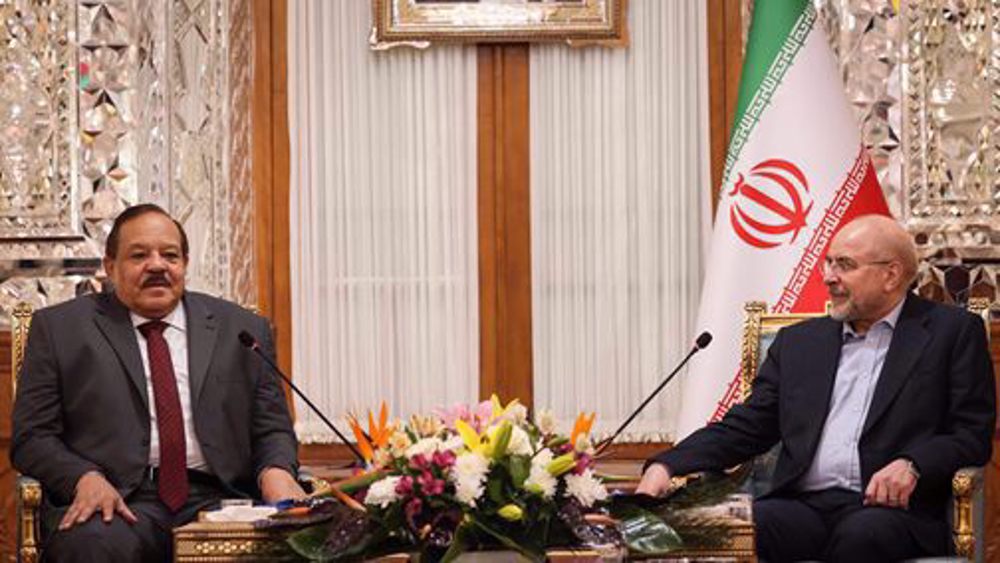
Iran urges establishment of stability, sovereignty in Sudan: Qalibaf
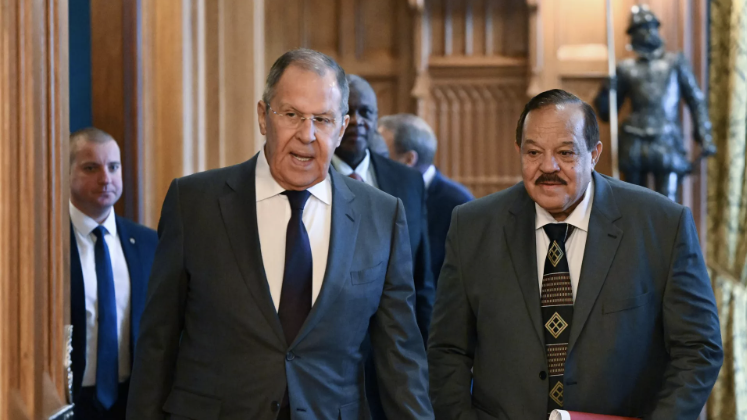
Russia secures agreement for naval base in Sudan
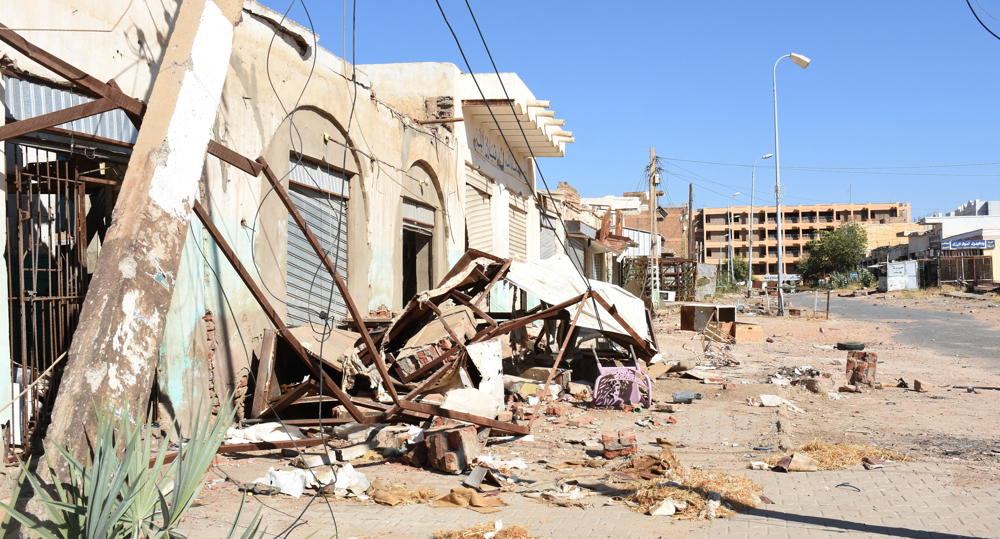
ICC seeks arrest warrants over alleged war crimes in Sudan’s Darfur
Iranian flotilla makes port call in India with 'friendship message'
How UK counter-terror police colluded with Zionists to detain me after Beirut trip
Biden, Blinken, Austin referred to ICC over Gaza war crimes
EU will 'do the same' if US implements tariff hikes: France
VIDEO | Press TV's news headlines
British celebrities condemn BBC removal of Gaza documentary
Iran Army acquires tactical vehicles, audio surveillance systems
VIDEO | UK police detain anti-Zionist scholar upon return from Lebanon


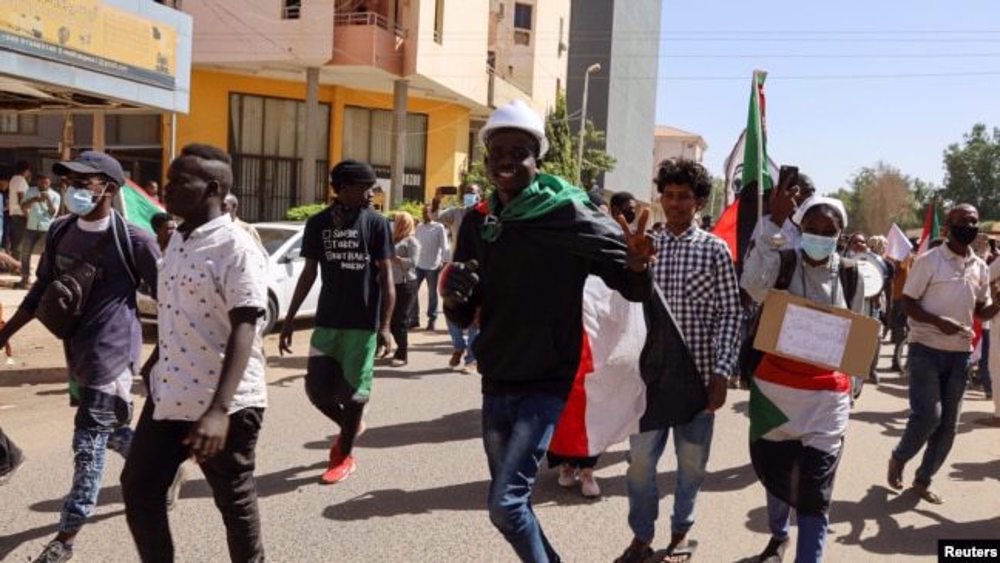
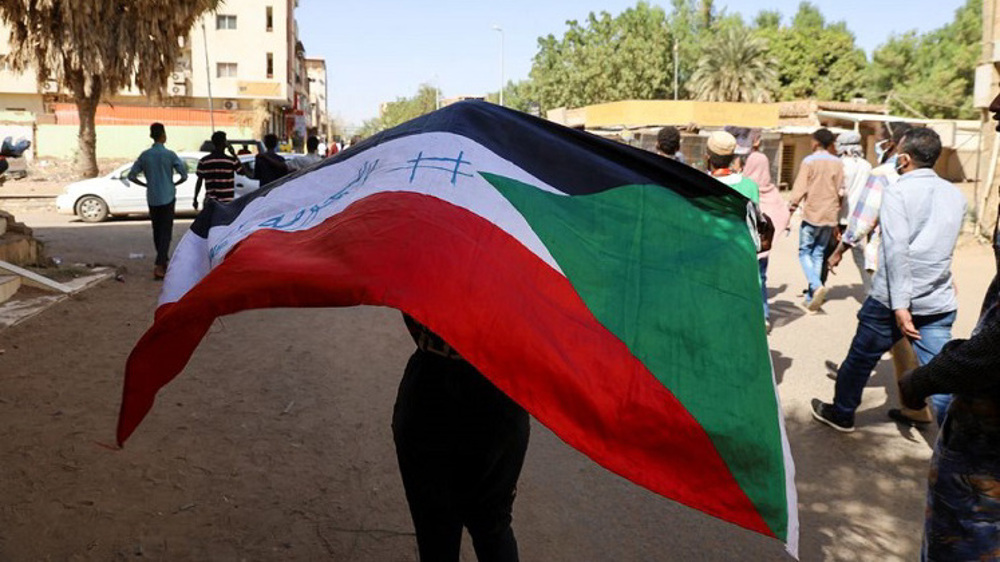
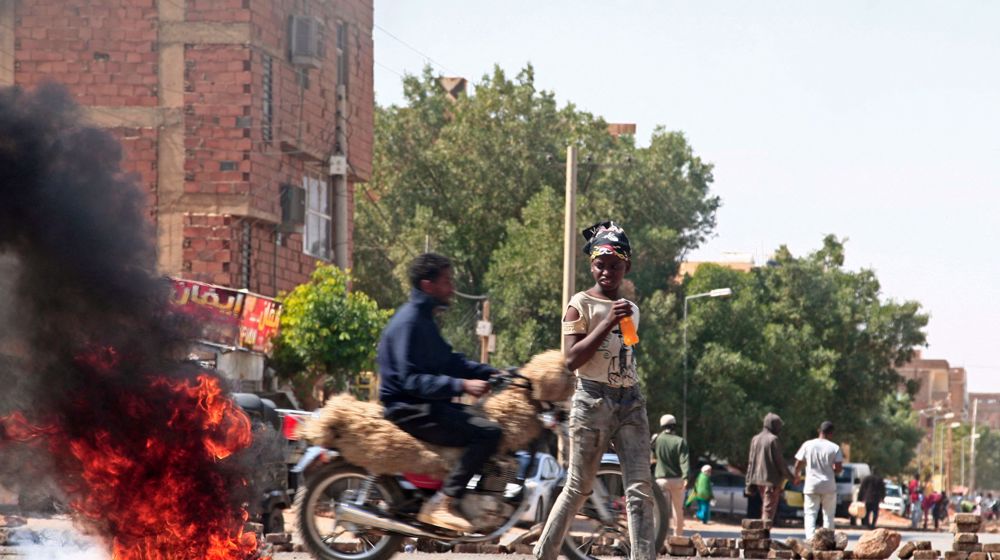



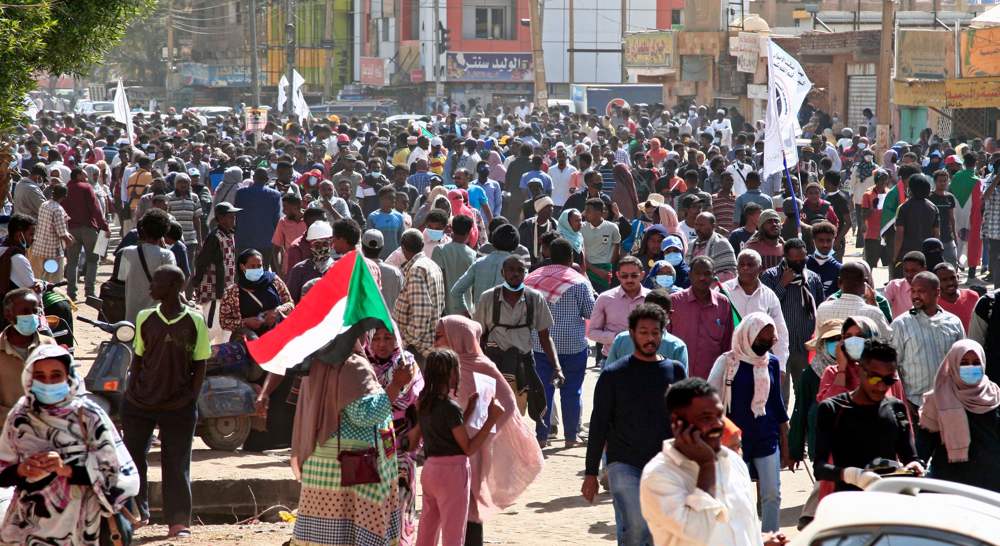
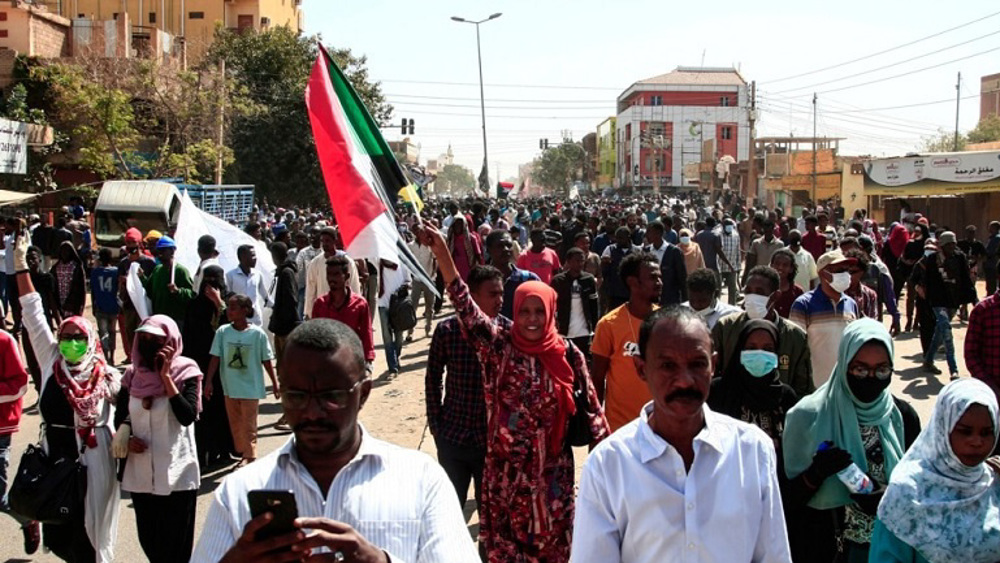
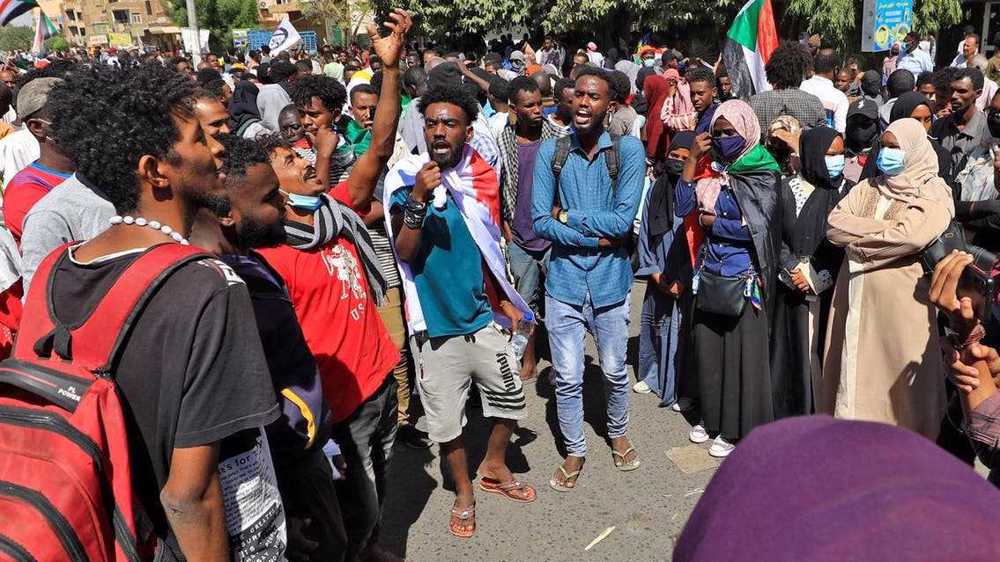

 This makes it easy to access the Press TV website
This makes it easy to access the Press TV website